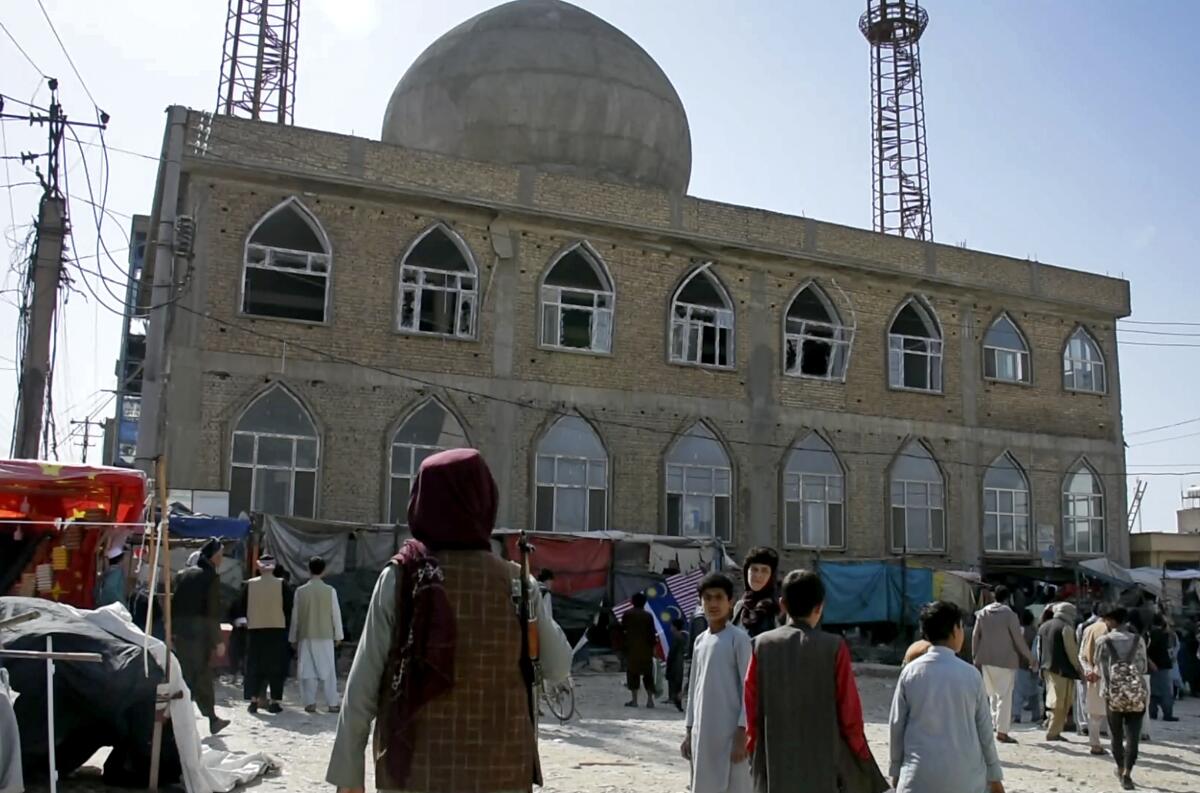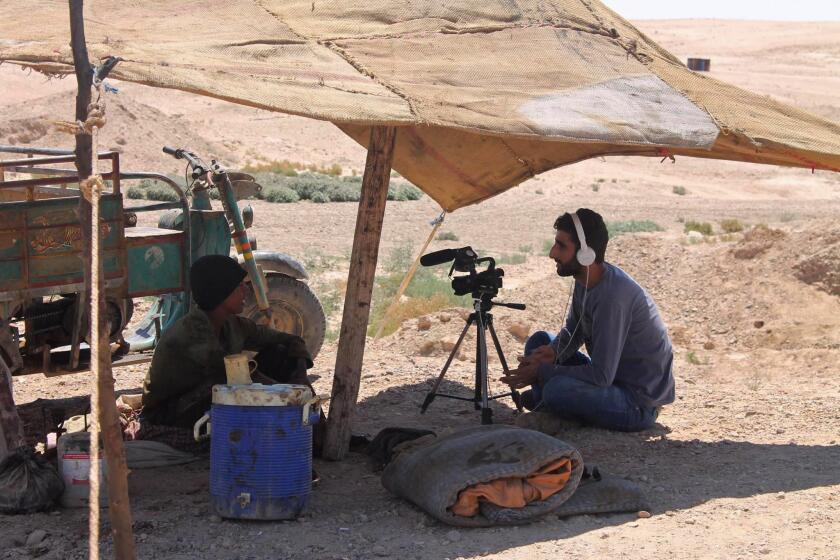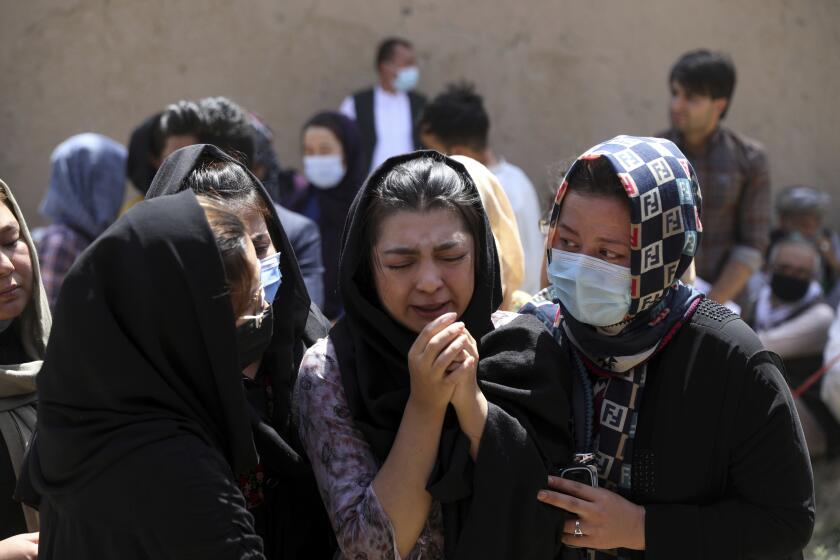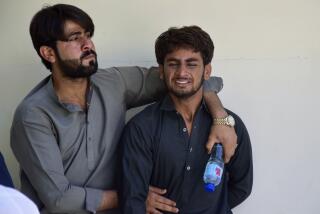Afghan Islamic State group claims series of bombings targeting Shiites

ISLAMABAD, Pakistan — An affiliate of Islamic State on Friday claimed a series of bombings from a day earlier that targeted Afghanistan’s minority Shiite Muslims, while Pakistan issued a warning of ISIS threats in its eastern Punjab province.
The deadliest of three bombings Thursday in Afghanistan exploded inside a Shiite mosque in the northern city of Mazar-e-Sharif. Hospital officials say at least 12 people were killed and as many as 40 were hurt.
Earlier Thursday, a roadside bomb exploded near a boys’ school in the Afghan capital of Kabul, injuring two children in the city’s predominantly Shiite neighborhood of Dasht-e-Barchi. A third bomb in northern Kunduz injured 11 mechanics working for the country’s Taliban rulers.
Since sweeping to power last August, the Taliban has been battling the upstart Islamic State affiliate known as Islamic State in Khorasan Province, or ISIS-K, which is proving to be an intractable security challenge for Afghanistan’s religiously driven government. In November, the Taliban’s intelligence unit carried out sweeping attacks on suspected ISIS-K hideouts in eastern Nangarhar province.
In a statement Friday, ISIS-K said the explosive device that devastated Mazar-e-Sharif’s Sai Doken mosque was hidden in a bag left inside among scores of worshipers. As they knelt in prayer, it exploded.
“When the mosque was filled with prayers, the explosives were detonated remotely,” the statement said, claiming that 100 people were injured.
Thousands of people believed seized by Islamic State are still missing, and calling their captors to account remains elusive.
The Taliban says it has arrested a former ISIS-K leader in northern Balkh province, of which Mazar-e-Sharif is the capital. Zabihullah Noorani, the information and culture department chief in Balkh province, said Abdul Hamid Sangaryar was arrested in connection with Thursday’s mosque attack.
ISIS-K had been relatively inactive in Afghanistan since November, but in recent days it has stepped up its attacks in Afghanistan and in neighboring Pakistan, taking aim at Shiite Muslim communities reviled by Sunni radicals.
Earlier this month, two bombs exploded in Kabul’s Shiite neighborhood of Dasht-e-Barchi, killing at least seven students and wounding several others.
ISIS-K established its headquarters in eastern Afghanistan in 2014 and has been blamed for some of the worst attacks in Afghanistan, including a vicious assault on a maternity hospital and an attack at a school that killed more than 80 girls in 2021, months before the Taliban took power.
After the collapse of the Taliban 20 years ago, Afghan Hazaras embraced hopes for a new democracy. Now they are being targeted in violent attacks.
The group also took responsibility for a brutal bombing outside Kabul International Airport last August that killed more than 160 Afghans who had been pushing to enter the airport to flee the country. Thirteen U.S. military personnel also were killed as they oversaw America’s final withdrawal and the end of its 20-year war in Afghanistan.
In recent months, ISIS-K has also stepped up attacks in neighboring Pakistan, targeting a Shiite mosque in the northwestern city of Peshawar in March. More than 65 worshipers were killed. The group has also claimed several deadly attacks against Pakistan’s military .
In Pakistan’s central Punjab city of Faisalabad, the local police on Thursday issued a threat warning, saying that “it has been learned that ISIS-K has planned to carry out terrorist activities in Faisalabad.” The police advised people to “exercise extreme vigilance.”
More to Read
Sign up for Essential California
The most important California stories and recommendations in your inbox every morning.
You may occasionally receive promotional content from the Los Angeles Times.












